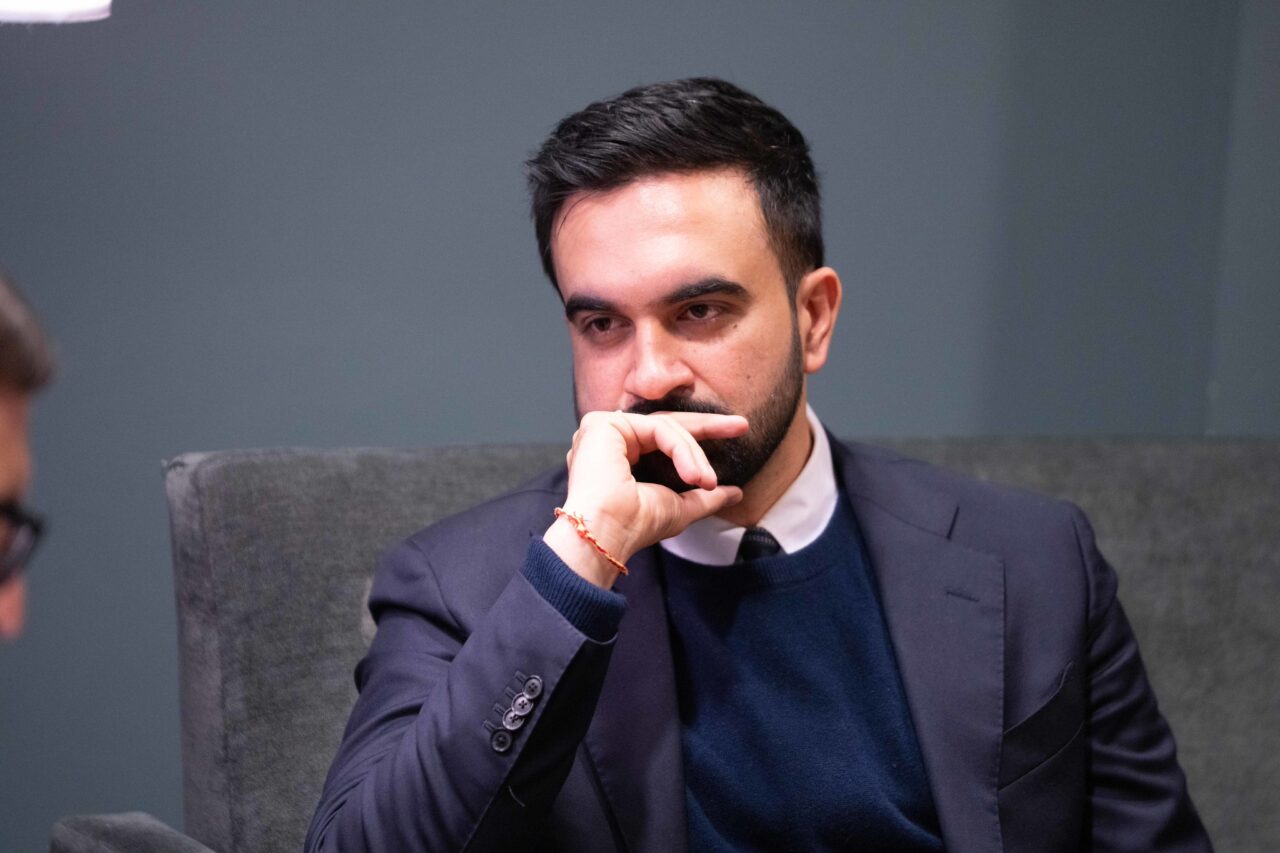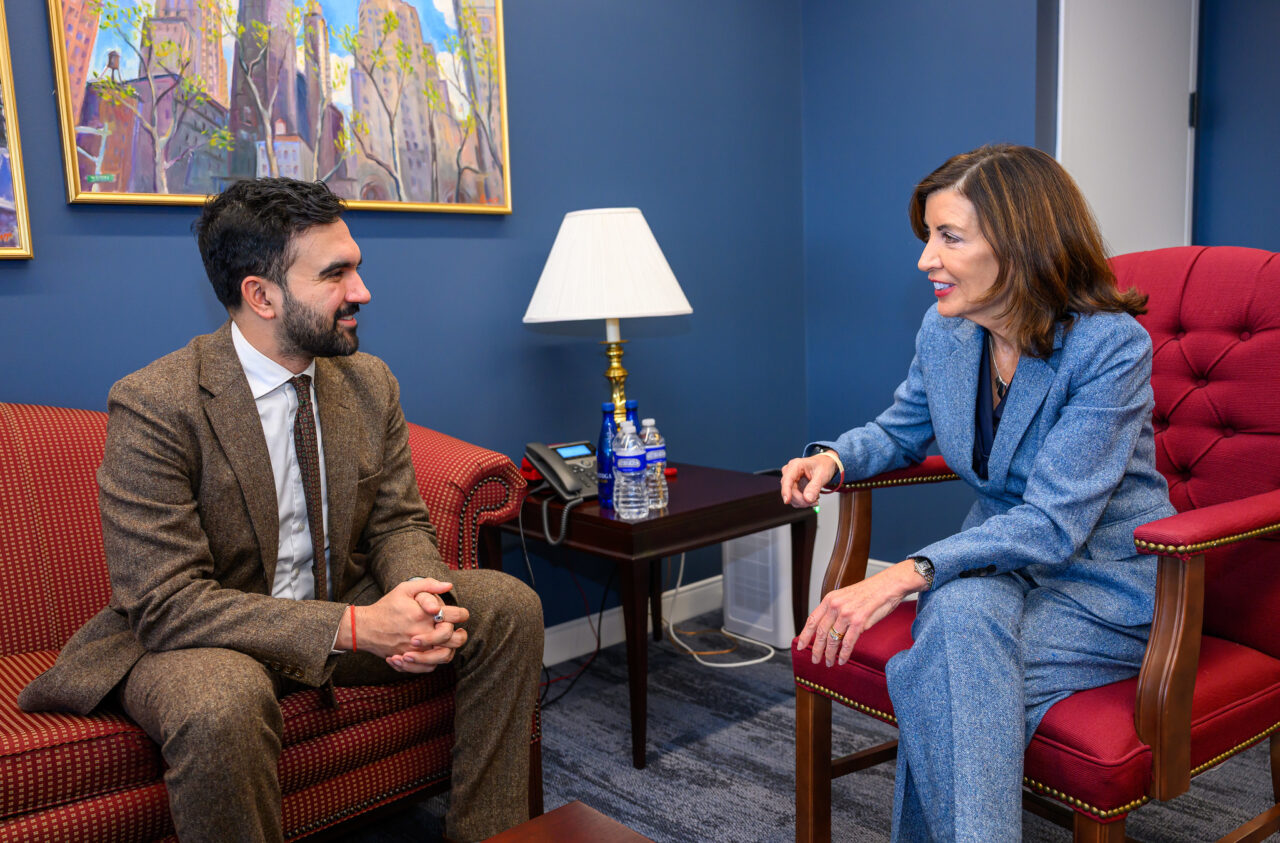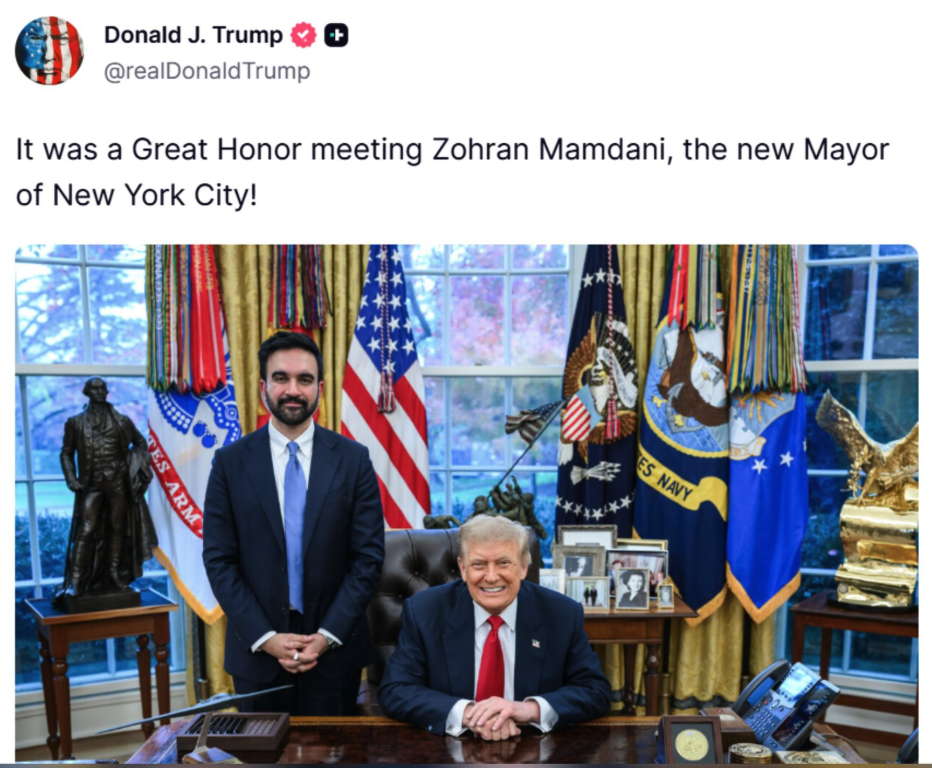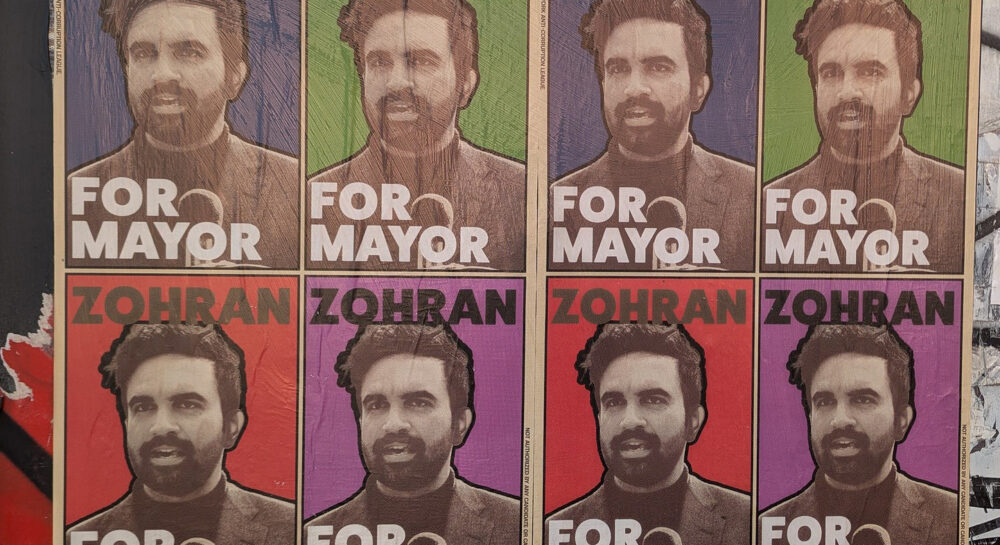The global left is rightly celebrating the victory of Zohran Mamdani as mayor of New York City. A young, immigrant Muslim. An open socialist and anti-Zionist. At the height of the Israeli war on Palestinians a third of New York Jews voted for him.
How should the workers’ movement optimise the ‘Mamdani moment’? There is much to celebrate but there are also huge limits to his power. Will he be seduced by the Democratic Party machine? Will he believe that he can wield executive power for good? Will he lean into the grassroots to mobilise to complete his program for change? How far from his Democratic Socialist comrades will he drift?
Mamdani will be under intense pressure from his base to fulfil his promises. There could be genuine ‘crises of expectations’ – so how should the left organise?
Joseph P. is a member of the Democratic Socialists of America New York City chapter and a member of its Marxist Unity Group faction. In April, he wrote an article ‘He Can Actually Win’, foreshadowing the transformative possibilities of Mamdani’s campaign. He also warned of the dangers of executive office that Mamdani could face as mayor.
Joseph has kindly agreed to update his analysis for Labor Tribune.
He has actually won…

Quite a bit has happened since I wrote about Zohran Mamdani’s mayoral election campaign in April. For one, the obvious: he not only managed to win the Democratic Party primary, he has been elected Mayor of New York City winning with a little over 51 percent of the total vote.
The size of the victory should not be understated, in such a crowded field Mamdani managed to win more votes than all other candidates combined, a more or less total victory.
In April when I wrote he was still considered a long shot. Mamdani rapidly gained ground at the expense of Andrew Cuomo after Mamdani won the Democratic primary. It should be said that Mamdani spent the last few months of his campaign leaning heavily on his cost-of-living and affordability messaging and he also began to soften his rhetoric around several aspects of his campaign.
Since Mamdani won the election he has begun to resemble the more familiar figure of the progressive establishment politician. One of his very first concessions to the leadership of the Democratic Party and the NYC elite has been to keep the New York City Police Department (NYPD) Commissioner Jessica Tisch, the scion of the billionaire Tisch clan, in her job as the top cop.
There is some evidence to suggest he did so to placate elements within the Democratic Party such as US House of Representatives minority leader Hakeem Jeffries, who endorsed Mamdani at the eleventh hour. In my view keeping Tisch on is a categorical mistake, it cedes control of the NYPD to a Zionist billionaire who is on record as saying she will do everything she can to undermine Mamdani’s agenda within the largest police department in the country.
When asked about this by the media Mamdani’s response has been to suggest that as her boss she will be forced to do what he says. This is a stunning admission of naivety on his part. As I mentioned back in April, former NYC mayors David Dinkins (also in the DSA) and Bill DiBlasio had similar illusions about the capacity of their office to reign in police power and both suffered the consequences as the NYPD revolted and plunged their administrations into crisis.
Democrats dominate the transition team

Another concerning dynamic has been Mamdani’s embrace of the traditional elements of the Democratic Party consultant-industrial complex in his transition team. He has hired former Obama consultants such as Jeffery Lerner and those associated with the campaigns of Democratic figures John Fetterman and Elizabeth Warren. His transition team is staffed by a collection of former government officials including Lina Khan, a former head of the Federal Trade Commission and luminaries of the establishment non-profit world.
Everything about his appointments suggest a continuity with the staff and politics of the progressive wing of the Democratic Party. What I said back in April remains the case, although the Democratic Socialists of America can claim the most responsibility for putting Mamdani in office, DSA can only count itself as one of the many partners in a coalition lining up behind him. DSA does have some influence with Mamdani, who is a member and continues to engage with the organisation, but the limits of this influence is growing and becoming apparent in his choice of appointees and his systematic attempts to throttle expectations of his administration.
As Marxists, we shouldn’t be too surprised that Mamdani is softly back-pedalling on elements of his early campaign and positions of the Democratic Socialists. His position depends to a large degree on how much support he will be able to accumulate with the leadership of the Democratic Party who has made it clear they expect him to govern as a ‘responsible’ progressive.
New York state Governor, Kathy Hochul, took the first step here, arranging closed door meetings with Mamdani to discuss the deployment of US Immigration and Customs Enforcement (ICE) in NYC, no doubt her pleading with him not to invite the wrath of Donald Trump.
The Trump meeting

This past week Mamdani met with Trump in the White House, the meeting was billed as a discussion between the two men about how they can best serve the interests of NYC. For the past few days, the strange sight of a visibly uncomfortable Mamdani side by side with a seemingly smitten Trump flashing him a beaming smile has been circulating. Many commentators are suggesting that Mamdani had gotten the best of Trump, winning him over with his boyish charm and shared love of NYC.
I wouldn’t be so convinced, Trump is famously capricious; this apparent softening of his stance on Mamdani is a flash-in-the-pan moment designed for the cameras.
The reality is Trump repeatedly threatened to withhold billions in federal funding to NYC if Mamdani was elected mayor. And if there is one thing that is clear about Trump is that he understands the old carrot-and-stick method of ensuring compliance. The same way Trump employed ‘carrot and stick’ against outgoing NYC mayor Eric Adams by first threatening him with federal indictment and then temporarily removing that threat to ensure that he would be able to control him. This same approach by Trump will see him use the threat of withholding federal funds to pressure Mamdani to accept ICE operations or a deployment of the National Guard within NYC.
Mamdani is thus setting himself up for a precarious balancing act. Someone working with the trappings of executive power, not pushing back against it. On the one hand he was elected by broad popular mandate in part for his willingness to directly confront Trump on things like deploying ICE in NYC. On the other, holding onto his executive position as a mayor without holding a majority on council is going to depend on the support of officials who do not share those goals or may in fact be hostile to them.
DSA must fight to keep Mamdani honest
The other factor in all of this is DSA and what role it will play in the upcoming administration. Back in April I argued that DSA has the unique opportunity to grow and take a bolder approach keeping Mamdani politically honest. Debates on this have started in the NYC chapter.
I argued in April that DSA should adopt the role of ‘loyal opposition’ to the administration, loyal in the sense of supporting Mamdani’s mayoralty but being willing to criticise and, if necessary, mobilise against him if he begins to deviate from his own stated politics.
Back then I said:
The role of DSA in a Mamdani administration would come down to two broad missions: 1) cohere a mass community-based movement of the working class in support of the administration, and 2) use the administration as a foothold to establish a permanent base of power within the city government and its institutions.
A Mamdani administration will likely find it difficult to enact radical changes under the current balance of forces in the city. The role of DSA, then, must be to actively construct a movement that can serve as a vital link between everyday people and the administration.
DSA should also maintain relative freedom from Mamdani, as he has repeatedly stated DSA’s program is not his program and we should take him at his word on that. Our job should be to develop and push our program beyond what Mamdani will ultimately be able to accomplish while also backing him up for the portions of his program that do serve ours and work to build us up as an independent force in politics that will outlast his mayoralty.
The debates taking place within the NYC-DSA on this, however, suggest the DSA leadership and its supporters in the rank-and-file, do not think it is worthwhile to offer any potential criticism of Mamdani.
NYC-DSA has grown fantastically in the past few months since Mamdani has won, gaining about 3000 new members bringing the total to about 12,000. A large bulk of the new members are doing so directly because of their experience of Mamdani’s campaign, so it is a safe assumption that these new members tend to be personally attached to him and have little understanding or experience with the ideas of Marxism. That is to say the bulk of the new members will be less inclined to push back on Mamdani in the future should he stray further from the principles of the DSA.
There is a real danger that DSA could squander this opportunity to grow an independent socialist movement on the back of Mamdani’s win if they adopt a supine orientation to his administration.
While Mamdani’s message of affordability has captivated millions of New Yorkers, it is a message for the social and political circumstances in which we find ourselves in, but it is a message framed in some sense that encourages passivity in the mass of working people.
The trap of executive power
Mamdani’s message has been consistently: “I will take care of you, I will make this city more affordable for you.” However, the nature of executive power makes this a very hard promise to deliver on, not to mention the array of ruling class forces which are lining up to undermine him in this agenda both within and without the Democratic Party.
The Marxist approach has always been to oppose executive power, whether president or mayor, and to build a working-class party for independent political action as the best way to win reforms in the short term, and the only way to win state power in the long term; that remains the case.
We are only just in the beginning of the process, the hard part begins when Mamdani takes office on 1 January 2026. The future of his administration is not set in stone, and I won’t be providing prophetic visions of rule or ruin. However, I remain hopeful that the experience of most working people in NYC as well as the rest of the country will prove to them the necessity for an independent working-class politics in the US.
As I concluded in my article in April:
Whether we absorb the lessons about the challenges of executive governance is unclear. What remains certain is the necessity of a mass movement unified around a program for revolutionary democratic socialism, determined by our organisation’s internal democratic process and our willingness to act.

